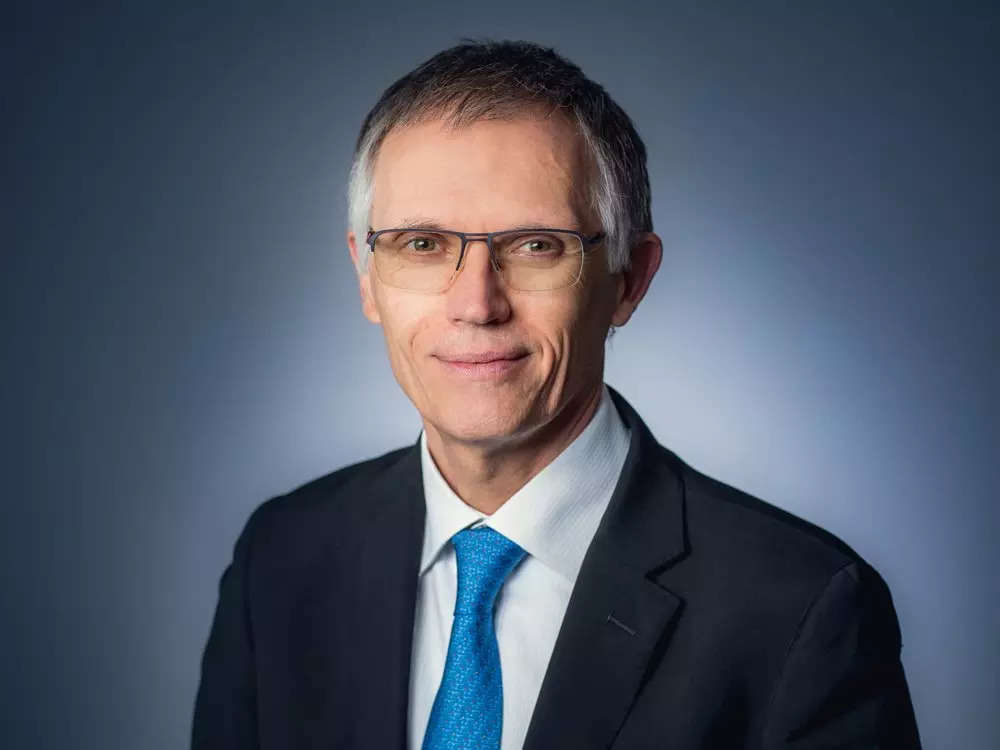
Chennai:
Carlos Tavares, CEO of Stellantis says amid global disruption in Europe and China, the situation offers “a bigger opportunity for India to grow” in the global automotive industry as well as the Stellantis World.The Euro-American car major wants to source billions of euros of parts from India and it is open to sourcing even cells and batteries out of the country.
“I am sure, India will be able to grab this opportunity, we are ready to accelerate with our plans in the country” told Tavares to select media after reviewing the Indian operation for over 8 hours.
With Jeep growing steadily, Stellantis plans to cater to the core of the B segment market – with a Citroen brand with a hatchback, an SUV as well as an MPV in the coming three years, and all these models will come with an electric powertrain.
In its vision of garnering over 25% business from outside of the European Union and North America, the Asia Pacific region will play a very important role, and India is “at the core” of this plan, added the CEO.
“We are a much bigger company. We have a strong confidence in the Jeep brand. Post the formation of Stellantis, our ambition has only grown. We are a much bigger company, the role of India has become more exciting than ever,” he added.
The World’s fourth largest automaker in terms of volumes is already using India as a strategic sourcing hub for engines and gearboxes, and the role will only grow even in an electrified world.
“Sourcing from India is a very good proposition. We would like to source batteries and cells from India for the rest of the world. We are looking for the right sources for global operations,” said Tavares.
Tavares is eagerly waiting for the Indian EV ecosystem to mature, so that the group can capitalize on not only participating in the local market, but use it for global sourcing.
While the group expects its entire sales in Europe to move to 100% EVs and 50% EVs in the US by 2030, in India Tavares expects the penetration will gradually grow to touch 25-30% by the end of the decade.
The global conglomerate which already has three manufacturing facilities, two R&D centres and two digital hubs in India will be entering the mainstream car market in the country with the Citroen C3 compact car in the next few months.
Tavares says, India the group has spent significant amounts of preparatory work since 2015.
“We have been working for many years on localisation and being vertically integrated to enjoy the frugality of India. The activities will start growing. While covid slowed down our plans a bit, we are ready to accelerate and we will grow profitably,” added Tavares.
Stellantis has announced an investment of $250 million in India in 2021, which is being consummated in product launches in the country including the launch of Citroen C3.
“From the day one, electrification was part of the Smart Car or C Cube plans. India will get its first EV in 2023. The vehicle is engineered in India for the Indian market. We are not only going to bring the compact cars less than 4 metres, you will have people mover to MPV, CUV products in India and all these products, EVs will be an alternative offered,” said the CEO.
Stellantis will not run behind volumes, claims Tavares and yet it plays its part in delivering to the group’s Dare Forward 2030 strategic plan of doubling the revenues with a double digit margin.
Sustainability is the key to reinvest in the future, he said.
A big supporter of India’s frugal engineering and innovative capabilities, it is possible to have a recurrent profit in India if you do things Indian way, said Tavares
It is demonstrated by Indian car makers, who have the biggest share of the market to be profitable. Some western car makers failed, as they brought cars from abroad, with the features and equipment set which were not valued by Indians, so they did not pay for it, explained Tavares.
“There is a longer record of people who came and left. One has to learn from the Indian way of doing things. One needs to engineer cars in India for Indian buyers, there is tremendous frugality and innovation power in the country,” he added.
According to several people in the know of the company’s production plans. In the mid-term Citroen has an annual volume ambition of 1 lakh cars. A significant part of it may be exported. Despite the modest volumes – a deep localization with significant engineering presence will ensure that India contributes to the profitability vision of the group.
“At present, India, as a market, is not in double digit as we are starting to grow our activity. But within a couple of years, we will have India at double digit margin and it will contribute to our long-term vision,” asserted the CEO.















